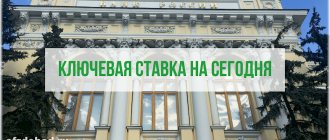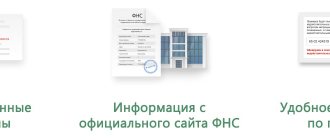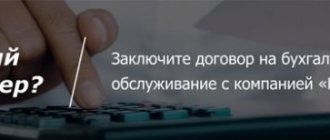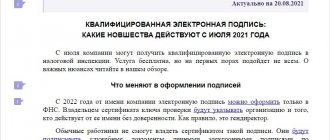Article 102 of the Tax Code of the Russian Federation on tax secrecy
The concept of tax secrecy is deciphered in paragraph 1 of Art. 102 of the Tax Code of the Russian Federation: information constituting a tax secret (SNT) is any information about the taxpayer and (or) payer of insurance premiums:
- received by officials of various government agencies (tax, customs, etc.) in the performance of their official duties;
- with the exception of the information specified in subparagraph. 1–13 p. 1 art. 102 of the Tax Code of the Russian Federation (publicly available information, individual data about the taxpayer, etc.).
Separately, the article focuses on the nuances of recognizing as SNT information contained in a special declaration provided to tax authorities in accordance with the law “On the voluntary declaration of assets and bank accounts by individuals” dated 06/08/2015 No. 140-FZ. Namely:
- information from the special declaration is included in the SNT category without the exceptions provided for in paragraph 1 (except for subparagraphs 4.9–13);
- in case of loss of documents attached to the declaration and (or) illegal disclosure of information contained in this declaration, criminal liability is provided;
- declaration data can be requested from tax authorities only at the request of the declarant himself.
The important aspects discussed in Art. 102 of the Tax Code of the Russian Federation, are issues of compliance with the tax secrecy regime. How are the issues of protecting tax secrecy analyzed in Art. 102 of the Tax Code of the Russian Federation - see the next section.
Information protected under tax secrecy regime is confidential
Tax secrecy is given a separate article of the Tax Code of the Russian Federation with the same name, number 102. Tax secrecy is a legally established special procedure for accessing and using information about taxpayers obtained by tax authorities in the course of interaction with taxpayers. In the process of companies working with tax authorities, the latter receive a lot of information that relates to the companies’ business activities. Which, of course, leads to concerns about the safety of such information. According to Art. 102 of the Tax Code of the Russian Federation, information protected under the tax secrecy regime is secret and should not be disclosed by tax authorities and other government agencies, their employees and other persons who, due to their official duties, became aware of this information.
Legal regime for the protection of tax secrets and responsibility for its disclosure
In accordance with Art. 102 of the Tax Code of the Russian Federation, tax secrets are protected by law, namely:
| Clauses of Article 102 of the Tax Code of the Russian Federation | Content |
| 2 | a ban has been placed on disclosing SNT |
| 3 | it has been determined that SNT are subject to special storage and access regimes |
| 4 | provides for liability for the loss of documents containing SNT (or their disclosure) |
For violation of the secrecy regime in relation to SNT, liability is provided for:
- disciplinary (if the actions/inactions of government officials did not cause serious harm or major damage to the taxpayer);
- administrative (fine for disclosing tax secrets under Article 13.14 of the Administrative Code: for individuals 0.5–1.0 thousand rubles, for officials — 4.0–5.0 thousand rubles);
- criminal (under Article 183 of the Criminal Code of the Russian Federation: fines of 0.5–1.5 million rubles, imprisonment for up to 7 years).
The materials in the “Responsibility and Penalties” section will tell you about the penalties provided for by law for taxpayers.
In order not to be punished under the above articles, individuals and government officials must have a complete understanding of the content of SNT, methods of obtaining and main features (we will discuss this in the following sections).
How to obtain compensation for losses caused by violation of tax secrets? Find out the answer to this question in ConsultantPlus. If you don't have access to the system, get a free trial online.
Legal advice on criminal liability for disclosing tax secrets
To have the charge of disclosing tax secrets dismissed, it is advisable to contact an experienced economic crimes lawyer in a timely manner. He is familiar with the methods of conducting investigations, has experience in interacting with investigative authorities, and understands judicial practice. A qualified lawyer will help you prove the absence of a crime and achieve a mitigation of the punishment. Contact SKP specialists for legal assistance. We will answer all your questions and help you choose the best methods of protection. Fill out the feedback form or call to schedule a consultation.
Forms and methods for tax authorities to obtain information constituting tax secrets
Art. dedicated to tax secrecy. 102 of the Tax Code of the Russian Federation defines tax secrets as any information about the taxpayer with the exception of certain types of information listed in paragraph 1 of this article. At the same time, the forms and methods of obtaining SNT, as well as their composition and content, are not regulated by law.
Based on the content of information received by officials, the following information may be classified as SNT:
- directly related to tax issues;
- others (not related to taxes, fees and contributions) of a confidential nature (for example, personal or family secrets).
The main way for government officials to obtain SNT is to request documents when carrying out tax control procedures (Article 82 of the Tax Code of the Russian Federation), including:
- tax audits;
- inspection of premises and territories used to generate income by the taxpayer;
- obtaining explanations from business entities;
- other procedures provided for by the Tax Code of the Russian Federation.
Tax authorities can obtain SNT in other ways, for example, individuals and organizations listed in the Tax Code of the Russian Federation are required to provide the tax authority with information known to them about the taxpayer (Articles 85, 86, 90, etc.).
All information about the taxpayer obtained as a result of control activities and the exercise of other official powers by tax officials belongs to the SNT category.
Features of tax secrecy
Content, access and the very disclosure of tax secrets, as legal concepts, have their own characteristics and nuances. For example, the disclosure itself constitutes personal use or transfer of this information to others.
Taxpayer data can be transferred to other persons, both free of charge and for a certain monetary reward. Of course, both of these methods are gross violations of the existing norms and rules of the Tax Code of the Russian Federation and are classified as legal tax crimes.
However, it will not be a violation to transfer taxpayer information to a responsible member of a consolidated group of taxpayers. Provided that the transfer was carried out by an authorized tax authority.
The provisions of tax secrecy provide for the establishment of liability even if documents containing secret information were lost by the responsible person.
Such documents may include tax returns and other papers that may contain information constituting a state secret. Most often, the loss of these documents entails the imposition of a fine, dismissal of an official from his position and other legal measures.
Main features of information classified as tax secret
In order to separate SNT from other types of information with limited access (professional, commercial, official secrets, etc.), we outline their main distinguishing features:
- SNT can be obtained only when government agencies exercise their powers (information about a taxpayer that has come to the hands of officials of government agencies and not received in connection with the exercise of their powers is not recognized as SNT);
- SNT refers exclusively to information about the taxpayer (other information received by tax officers or customs officers in the process of performing their duties is not a tax secret);
- receipt of SNT occurs within the framework of legal relations between the tax authority acting on behalf of the state (Article 31 of the Tax Code of the Russian Federation provides the authority to request the necessary information) and the taxpayer (Article 23 of the Tax Code of the Russian Federation obliges the taxpayer to provide it);
- SNT received by government agencies have a special storage and access regime;
- The procedure for access to SNT is established by their orders of the Federal Tax Service, Federal Customs Service and the Ministry of Internal Affairs of Russia.
Note! Information about the taxpayer that is not related to tax secrets can be checked in the service from the Federal Tax Service "Transparent Business", which can be used to check the counterparty. Read more about counterparty verification here.
What a taxpayer needs to know about the term “sign” - see the materials:
- “Sick leave - 10 signs of fake”;
- “A sign of unconditionality of payment in a budget obligation”.
Taxpayer consent to disclosure of information: form 2020
SNT in certain cases can move from the classified category to the public category (clause 1 of article 102 of the Tax Code of the Russian Federation, clause 4 of article 31 of the Tax Code of the Russian Federation). Such a transition occurs with the consent of the taxpayer in a form regulated by law.
In 2022, the order of the Ministry of Finance and the Federal Tax Service of Russia dated November 15, 2016 No. ММВ-7-17/ [email protected] is in force, approving:
- form and format of the taxpayer’s consent to recognize SNT as publicly available information;
- scheme for filling out the form;
- algorithm for presenting the form to tax authorities.
The consent form consists of two sheets and in many fields it is very similar to a tax return or other tax report that is familiar to all taxpayers, but it also includes specific fields:
| Field name | Filling scheme |
| “Grants consent to the recognition of the following information, constituting in accordance with Art. 102 of the Tax Code of the Russian Federation, tax secrets, publicly available" | “1” - if the taxpayer determines SNT to be publicly available in full; “2” - when selecting part of SNT as publicly available |
| “The period for which information constituting a tax secret is recognized as publicly available” | The start and end dates of the corresponding period are reflected (for example, if the period for 2022 is selected, the field is filled in as follows: from 01/01/2020 to 12/31/2020) |
Failure to comply with this consent form may serve as grounds for refusal to accept it by the tax authorities.
ConsultantPlus experts explained how to correctly fill out and submit consent to recognize tax secrets as publicly available. Get trial access to the system and switch to a ready-made solution. View a sample of filling out the document for free.
What types of consents and objections taxpayers face - see the materials and messages:
- “Consent to the processing of personal data of a minor - sample”;
- “Objection to a court order on transport tax (sample)”.
How disclosure of tax secrets can lead to fines from Roskomnadzor
Representatives of the cleaning and technical maintenance market, as well as other industries for which the Federal Tax Service implements so-called Whitewashing Projects, in their desire to prove their tax integrity and law-abidingness, unfortunately, often forget that in Russia there is not only a Tax Code, but also a Code on Administrative offenses under the Personal Data Law.
Participants in industry projects who listened to the “recommendations” and decided to join various communities “created with the participation of the Federal Tax Service” reveal part of their tax secrets for this purpose. However, few of the managers of these companies think that such a selective approach to law-abidingness could lead to multimillion-dollar fines from Roskomnadzor. For some, even quarterly revenue may not be enough to pay off debts for non-compliance with requirements for the processing and distribution of personal data of their own employees. And the total amount of penalties for the facilitation industry can reach 10-digit values.
As part of the disclosure of tax secrets on the basis of clause 1 of Art. 102 of the Tax Code of the Russian Federation, the disclosed information becomes publicly available, that is, access to it is not limited in any way and it can be used by any persons at their discretion, subject to the restrictions established by federal laws regarding the dissemination of such information (Article 7 of the Law “On Information, Information Technologies and Information Protection” ").
Deputy Head of the Federal Tax Service of Russia D.S. Satin, in his letter dated March 19, 2020 No. SD-4-2/ [email protected] explained that consents given by taxpayers with codes “1000”, “1100”, “1300” and “1400”, indicating in the field “1400” » sequences of letters and symbols GRUZ, express the taxpayer’s consent to the recognition as publicly available, including information about insured persons (tariff code, TIN, full name).
For participants in the BelyFM Register, its holder recommends that the period of such consents be indicated from the first day of the current year and without specifying an end date, that is, to disclose tax secrets without time limits.
BelyFM.rf is an information resource created jointly with the Federal Tax Service as part of the industry Project to increase transparency of the facility services market
According to the explanations of Roskomnadzor (letter No. 08-20922 dated 04/07/2021), information in the amount of last name, first name, patronymic of an individual and TIN is personal data, the processing of which must be carried out in strict accordance with the requirements of Law No. 152-FZ . Thus, along with the tax secret revealed in the GRUZ case, the personal data of employees of companies participating in industry projects of the Federal Tax Service becomes publicly available indefinitely. We are talking about all full-time employees of the company (from the general director to the cleaning lady) and employees under civil contracts for whom payments were made to the Social Insurance Fund during the period of validity of the taxpayer’s Consent to recognize information constituting a tax secret as publicly available. This number includes “old employees”, “conscripts”, “shift workers”, and those who have worked for only one day at the company.
From March 1, 2022, publicly available personal data is called “personal data authorized by the subject of personal data for distribution” (PDnRR), and their processing must be carried out taking into account the provisions of Article 10.1, introduced by the Federal Law of December 30, 2020 No. 519-FZ “On Amendments to Federal Law “On Personal Data”.
The new article stipulates the need for the subject of personal data (employee) to issue a separate Consent to the processing of PDnRR, which is provided to specific operators for a specific period.
The operators of such personal data, according to explanations from Roskomnadzor, are both the employer and third parties, including the Federal Tax Service and organizations that receive information about a legal entity based on a request in the KND form 1110070 “For the provision of information constituting a tax secret, recognized as publicly available in accordance with paragraph 1 of Article 102 of the Tax Code of the Russian Federation.”
However, the requirements of the Law on Personal Data do not apply to the Federal Tax Service, since it processes them “in order to fulfill the functions, powers and responsibilities assigned by the legislation of the Russian Federation to the federal executive authorities, executive authorities of the constituent entities of the Russian Federation, and local governments.” That is, acting within the framework of Art. 102 of the Tax Code of the Russian Federation, tax officials only fulfill their duties to process the taxpayer’s request to disclose his tax secrets and provide publicly disclosed information to third parties upon request.
Within the meaning of the provisions of the Law on Personal Data, an employer company that decides to take part in an industry project to whitewash the industry and reveal its tax secret in the GRUZ case becomes an operator of personal data permitted for distribution, since it plans to process and distribute the PDnRR of its employees (full name TIN).
A legal entity does not have the right to consent to the disclosure of tax secrets in the GRUZ case without first obtaining the above consent from the employee , since “silence or inaction of the subject of personal data under no circumstances can be considered consent to the processing of personal data authorized by the subject of personal data for distribution " At the same time, the Consent must contain direct permission to distribute PDnRR and a stated absence of prohibitions on their processing.
Before submitting consent to the Federal Tax Service, a future participant in the BelyFM Register or other registers using the information disclosed in the GRUZ case must:
- adjust the organization’s local regulations in the field of personal data processing;
- prepare and post on your website a Policy regarding the processing of personal data;
- familiarize your employees with the Policy and explain to them their rights regarding withdrawal of consent and prohibitions on processing personal data;
- obtain Consents from employees granting the right to the PD operator to disclose to an unlimited number of persons and make publicly available the personal data of the subject (full name, INN) with specific validity periods of these consents and an indication of the operators who are granted the right to process and distribute the disclosed personal data (at a minimum, the company must be indicated -employer);
- publish information about the conditions of processing and the existence of prohibitions and conditions for the processing of PDnRR by an unlimited number of persons no later than three working days from the receipt of the appropriate consent of the subject of personal data (ed. note - at the moment the regulator has not determined the format and place for publication of such information ).
It is worth noting that the operator (employer) does not have the right to force the subject to sign the Consent, since in accordance with paragraph 1 of Art. 9 Federal Law-152, a citizen decides to provide his personal data and consents to their processing freely, of his own free will and in his own interest. That is, it is illegal to threaten with dismissal or termination of a contract for refusing to sign the Consent. And a document obtained under threats will not have legal force.
In addition to employers, consent to the processing of personal data permitted for use from employees of companies that have disclosed tax secrets in the GRUZ case must also be collected by those who plan to request public information about such organizations through the KND form 1110070 - individual entrepreneurs and legal entities of any form of ownership (commercial and non-commercial). Before requesting such information, a Policy regarding the processing of personal data and information about the conditions for processing PDnRR on received Consents must be published on the website of the recipient organization.
Until 07/01/2021, consent to the processing of personal data must be transferred by the subject or his representative under a notarized power of attorney directly to the personal data operator in writing on paper or in the form of an electronic document signed in accordance with federal law with an electronic signature. Roskomnadzor, by its order, approved the Requirements for the content of consent to the processing of personal data permitted for distribution. They come into force on September 1, 2021, but it is better to use these recommendations now so as not to collect consent again in September.
The law warns that the PD operator, in the event of an inspection by Roskomnadzor or in a lawsuit, will have to prove that he has Consent to the processing of the relevant personal data. The same applies to cases of disclosure of personal data to an indefinite number of persons as a result of an offense, for example, when an employer “forgot” to obtain Consent to provide personal data to an unlimited number of persons from an employee before sending consent to the Federal Tax Service for disclosing tax secrets in the GRUZ case. In this case, both the employer and the recipient of publicly available information, as well as any person who has distributed or otherwise processed the employee’s personal data, will be required to provide evidence of the legality of the subsequent distribution or other processing of such personal data.
For violation of legislation in the field of personal data, administrative liability is provided in accordance with the provisions of Art. 13.11 Code of Administrative Offenses, in which, from March 27, 2021, penalties have been tightened: fines have been doubled and warnings have been cancelled. That is, if a violation is detected, you will have to pay in any case. And in accordance with the provisions of Article 2.1 of the Code of Administrative Offenses, a legal entity is found guilty of committing an administrative offense “if it is established that it had the opportunity to comply with the rules and regulations, for violation of which this Code or the laws of a constituent entity of the Russian Federation provides for administrative liability, but this person all measures within his power to comply with them were not taken.” If specific officials are identified through whose fault the law was violated, they will be held administratively liable at the same rate as a legal entity. Thus, both the company and its responsible employees will be tried for the same offense.
Violation of the Law on Personal Data by participants in industry whitewashing projects will be ongoing, starting from the moment the Consent to disclose tax secrets is submitted to the Federal Tax Service, due to the indefiniteness of such consent. In case of such an offense, the terms begin to be calculated from the day it was discovered by the official authorized to draw up a protocol on the administrative offense and discovered the fact of its commission. However, judicial practice on this issue is heterogeneous. Therefore, bringing to administrative liability within the statute of limitations (3 months) will remain at the discretion of a particular court.
Those interested can familiarize themselves with and independently calculate the amount of possible penalties for companies and their managers for violating the Law on Personal Data when participating in industry projects to whitewash the Federal Tax Service.
For reference: there are currently 328 organizations and individual entrepreneurs in the BelyFM Register with an average staffing level of 343 people.
1. For the use by the employing company of a standard Employee Consent, which does not grant the right to disclose information to an indefinite number of persons, as a basis for submitting Consent to disclose tax secrets in the GRUZ case (clause 1 of Article 13.11 of the Code of Administrative Offences), fines are possible:
- for officials - from 10 thousand to 20 thousand rubles;
- for legal entities - from 60 thousand to 100 thousand rubles.
2. For the employer company’s disclosure of tax secrets in the GRUZ case without first obtaining Consent to process the employee’s PDnRR, failure to obtain (lack of) Consent from a new employee hired after disclosing the tax secret in the GRUZ case, use of Consent with an incomplete set of information established by law, including validity periods and operators who are allowed to process and distribute the employee’s personal data (Clause 2 of Article 13.11 of the Administrative Code), fines are possible:
- for officials - from 20 thousand to 40 thousand rubles;
- for legal entities - from 30 thousand to 150 thousand rubles.
3. For the absence of a published Policy regarding personal data from the employing company or the recipient company of publicly available information on the GRUZ case (clause 3 of Article 13.11 of the Administrative Code), fines are possible:
- for officials - from 6 thousand to 12 thousand rubles;
- for legal entities - from 30 thousand to 60 thousand rubles;
- for individual entrepreneurs - from 10 thousand to 20 thousand rubles.
4. For violation of the deadlines (3-10 working days) for fulfilling the request of the PD subject to stop processing or delete personal data in the event of their unlawful processing by the employing company or the company receiving public information on the GRUZ case (Clause 5 of Article 13.11 of the Code of Administrative Offenses), fines are possible :
- for officials - from 8 thousand to 20 thousand rubles;
- for legal entities - from 50 thousand to 90 thousand rubles;
- for individual entrepreneurs - from 20 thousand to 40 thousand rubles.
Hello Guest! Offer from "Clerk"
Online professional retraining “Accountant on the simplified tax system” with a diploma for 250 academic hours . Learn everything new to avoid mistakes. Online training for 2 months, the stream starts on March 1.
Sign up
Results
Information classified as a tax secret is confidential information, access to which is legally limited. Classified tax information, with the consent of the taxpayer, can become publicly available after a special consent is issued, the form of which is regulated by a joint order of the Ministry of Finance and the Federal Tax Service of Russia.
Sources:
- Tax Code of the Russian Federation
- Order of the Ministry of Finance and the Federal Tax Service of Russia dated November 15, 2016 No. ММВ-7-17/ [email protected]
You can find more complete information on the topic in ConsultantPlus. Free trial access to the system for 2 days.





